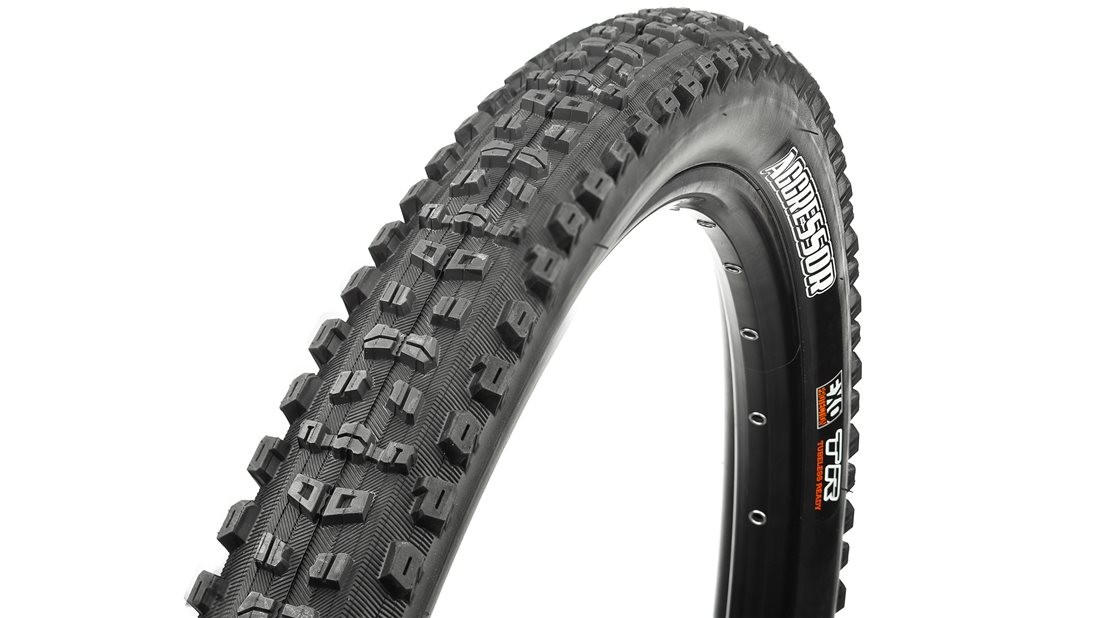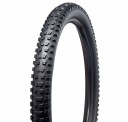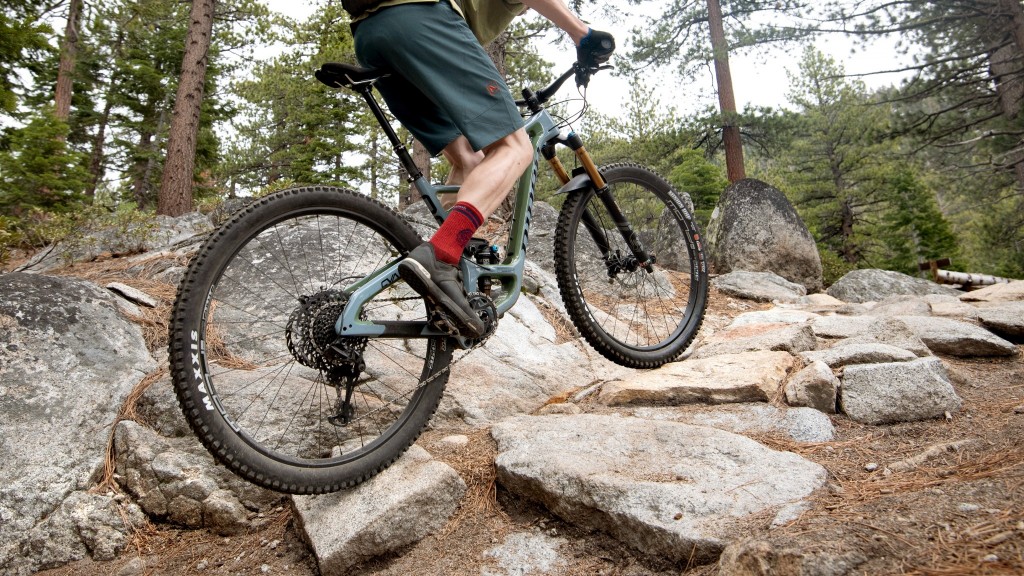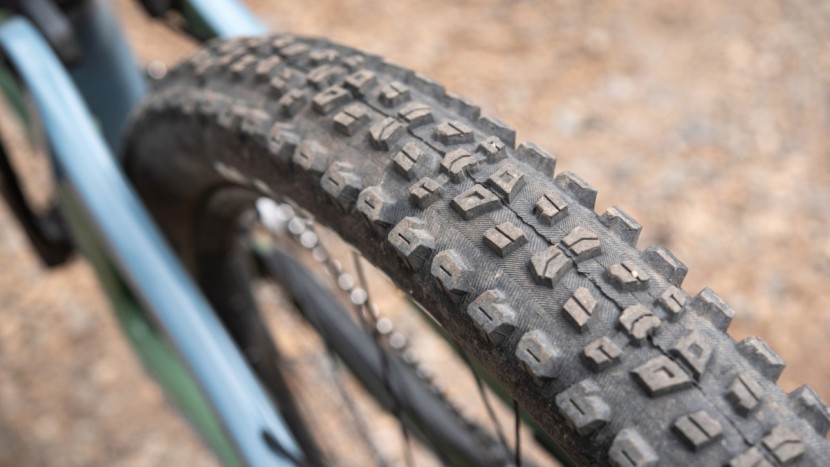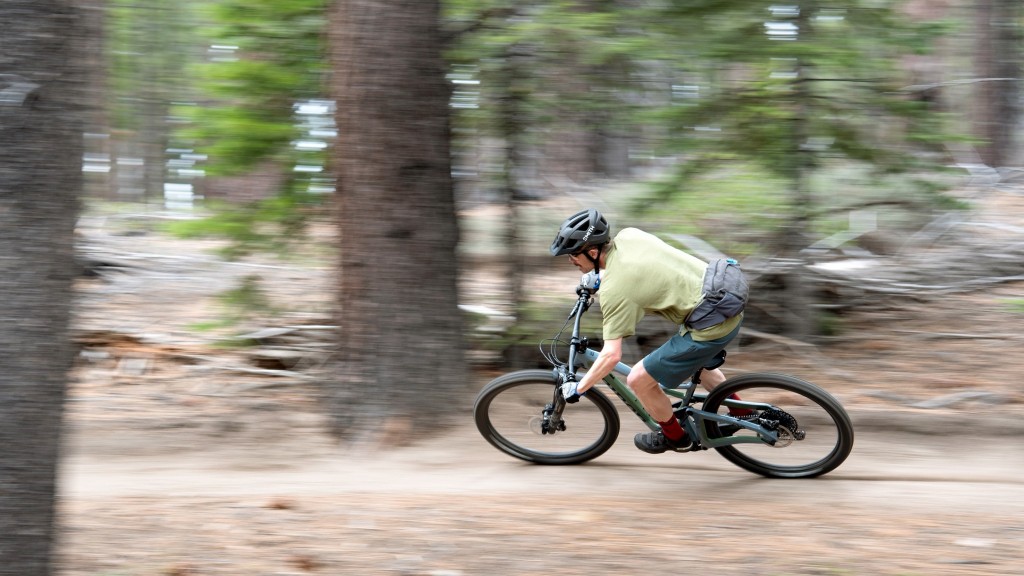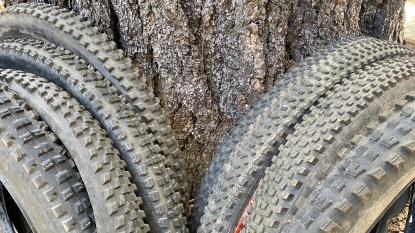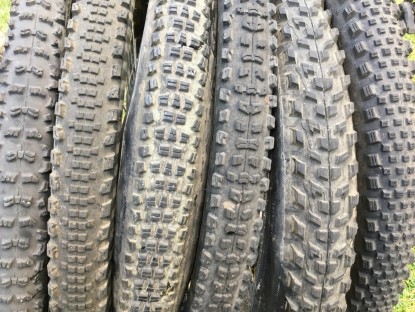Maxxis Aggressor 2.3 EXO Review
Our Verdict
Compare to Similar Products
 This Product
Maxxis Aggressor 2.3 EXO | |||||
|---|---|---|---|---|---|
| Awards | Best Overall Rear Tire | Best Overall Front Tire | Another Great Front Tire | Best Bang for the Buck Front Tire | Best Bang for the Buck Rear Tire |
| Price | $54.95 at Amazon Compare at 3 sellers | $61.50 at Evo Compare at 4 sellers | $60.14 at Amazon Compare at 2 sellers | $70 List Check Price at Backcountry | $69.99 at Evo Compare at 2 sellers |
Overall Score  |
|||||
| Star Rating | |||||
| Bottom Line | A killer rear tire that does it all well | Step up your game and start leaving your friends in the dust | An outstanding, aggressive tire that rivals the more popular competition | Same great value, but improved grip and performance with a new rubber compound | A versatile semi-aggressive rear tire with well-rounded performance and a reasonable price |
| Rating Categories | Maxxis Aggressor 2.... | Maxxis Minion DHF 3... | Vittoria Mazza | Specialized Butcher... | Specialized Elimina... |
| Cornering (25%) | |||||
| Pedaling Traction (20%) | |||||
| Braking Traction (20%) | |||||
| Rolling Resistance (15%) | |||||
| Longevity (15%) | |||||
| Installation (5%) | |||||
| Specifications | Maxxis Aggressor 2.... | Maxxis Minion DHF 3... | Vittoria Mazza | Specialized Butcher... | Specialized Elimina... |
| Size tested | 29" x 2.5" WT | 29" x 2.5" WT | 29" x 2.4" | 29" x 2.6" | 29" x 2.3" |
| Weight as tested | 950g | 954g | 1090g | 1123g | 945g |
| Front, Rear, or Both | Rear | Front, Both | Front, Both | Front, Both | Rear |
| Casing Tested | EXO | EXO | Trail | GRID Trail | GRID Trail |
| Compound Tested | Dual | 3C Maxx Terra | 4C Graphene 2.0 | Gripton T9 | Gripton T7 |
| Bead | Folding | Folding | Folding | Folding | Folding |
| Tread Count (TPI) | 60 | 60 | 120 | 60 | 60 |
Our Analysis and Test Results
New to the Maxxis mountain bike tire lineup a couple of years ago, the Aggressor has quickly become a go-to rear tire choice for a lot of riders. Unlike some of their more aggressive trail tires, the Aggressor has a more moderate center tread profile, which is a nice middle ground between the super aggressive and the semi-slick options. The result is a tire that blends low rolling resistance with the grip characteristics of a tire that actually has some knobs. It might just be the best of both worlds.
Cornering
Sure, this tire loves to be driven hard into corners, but perhaps more noteworthy is that you don't have to hammer it hard to reap its performance benefits. Unlike the majority of the semi-slick rear tire designs we tested, riders are not forced to find and maintain a “sweet spot” on this tire. Instead, the Aggressor provides its driver with a predictable and consistent amount of cornering traction with little regard for how far they choose to lean the bike over. Other tires required a greater amount of commitment to the lean as their tread pattern often went from small crown knobs to large edge knobs with little transition, necessitating an all-or-nothing approach.
Maxxis uses siped knobs in the transitional zone to help detract from that feeling of being in no man's land when you're less committed in a corner. When you do corner aggressively, however, and get the bike leaned over the alternating, pared-down, siped, Minion-esque side knobs take over to provide exceptional grip. This tire was unique in that the others in the test were either of the semi-slick variety or a more traditional knob profile. Blending the best traits from each design, it truly is in a class all its own. If you've made it this far and are considering purchasing this tire, just hit “submit” on that shopping cart already.
If you're looking for a rear tire with a more aggressive tread, we think the Maxxis Minion DHR II is another great choice. The DHR II has beefy side knobs and a taller center tread that give it great cornering abilities and even more braking traction.
Pedal Traction
What makes the Aggressor such a great braking tire also helps it excel in the pedaling traction department. The base of the tire features a unique herringbone texture, where all other tires were smooth between the knobs. We doubt this helps much at all with traction on dry soils, but we were happy with how the tire performed over wet rocks and roots and think the texture may aid traction in these situations. What does help is the thoughtful placement of the center knobs. Offset between the side knobs, a trilogy of interconnected knobs helps to flatten the profile of the tire, thereby boosting traction by keeping more of the tread in contact with the ground. Though there wasn't a condition that our testers didn't like this tire in, it felt particularly adept on our loose and dry soils that typify a Tahoe summer.
Pedal traction is where many of the semi-slick tires leave you wanting more. This tire surely outperforms the Specialized Slaughter on the ups or under hard pedaling where the paltry center tread can easily slide out from under the rider, especially during out-of-the-saddle climbing.
Braking Traction
The knobs are not ramped, and therefore instead of glancing over the terra firma, the sharp horizontal edges dig in. An interesting variety of knobs reside between the shoulder knobs that seem particularly well-suited to braking; a wing-shaped knob with a small channel bisecting it, three interconnected knobs with horizontal siping on the center knob and vertical siping on the extension knobs, and a horizontally siped rectangular block with a small channel down the middle.
With enduro racing often taking place on the very brink of control, it's nice to have an extra bit of braking traction to potentially avert disaster in situations where the bike is forced to suck up the brunt of your miscalculation, or not. Arguably the biggest advantage to this tire is that it was quite fast but still maintained sufficient braking quality that was lacking in the semi-slick designs. Tires with more aggressive center tread lugs like the Maxxis Minion DHR II and the WTB Convict offer better braking traction in loose conditions, but sacrifice rolling resistance as a result.
Rolling Resistance
Considering the braking and pedaling traction that the Aggressor has, testers found it to roll with relatively little resistance. The knobs maintain a consistent height, which may slightly increase their rolling resistance, but it was nothing that ever felt sluggish to us. In fact, with this tire being one of the first we mounted up, we felt it was pretty darn roll-y until we got on some of the smoother designs.
Billed as an all-around tire by Maxxis, we'd say the features that make this tire excel in braking and pedaling can be directly linked to its middle-of-the-road feel as it rolls along. It may not be the fastest rolling tire, but its ability to hold a line downhill was favored by many testers. The semi-slicks offer less resistance, but you should be totally sure you're willing to sacrifice pedal and braking traction before going for broke in the fight against the clock and gravity.
Longevity
We tested the EXO casing, and it held up well for lots of miles, showing only scuff marks on the sidewalls. In our hands, the Maxxis tires feel beefier and more robust. Unfortunately, our tire suffered a small tear/puncture just above the tire bead, millimeters from where it exits the rim. Full disclosure, this damage can be blamed on inferior technique on the author's part when he plowed into a rocky uphill transition in Downieville, CA, with zero finesse or regard for the well-being of his rear wheel.
We were on the renowned Butcher Ranch Downhill, so perhaps the thicker, Double Down casing (not tested) should have been the go-to selection that might have prevented this catastrophe. Outside of this test, we rode the 29er version of this tire and were impressed with how the tread on the tire held up to repeated skidding on granite. The tire was ridden off a trail feature that dropped onto a rock slab forcing the rider to immediately shut things down by skidding. After running the same feature about 25 times, the tire looked ever-so-slightly worse for the wear than at the outset. In terms of tread wear, longevity is very much a function of how much rubber you have to wear through and how hard that rubber is.
Installation
Astonishingly, this tire was seated the first time using only a floor pump. Grabbing it for a friend to try out the day it arrived, in our haste, we forgot to bring along our Bontrager TLR Flash Charger. Halfheartedly, we decided to give it the old college try, lathering it with soapy water and dumping a bunch of Stan's sealant in there. That unexpected ping, ping, badda-bing was music to our ears as we thought for sure tubing them up would be the only way our buddy was riding them that day. Subsequent installations have been just as straightforward.
Value
At its retail price, we'll buy this tire all day long. The innovative design and exceptional ride make this tire a great value. Not to mention the fact that you'll be hard-pressed to find a condition aside from deep mud that will necessitate an alternative tire choice. With entry fees for enduro races not going down anytime soon and bikes costing ten grand, the Aggressor might be the least expensive performance enhancer not yet on the banned substances list.
Conclusion
It was love at first ride with this tire back when we tested enduro bikes, and the affair continues even stronger to this day. We knew it was the real thing when there was hardly a time we ever wanted to be away from this tire. It's fast, but not at the expense of being able to slow down effectively like some other tires with minimal center tread. It holds a line through corners but is just as happy to be flicked and tossed around with a little unweighting. The Aggressor is a great rear tire for virtually any condition or style of riding.
Other Versions
The Aggressor comes in a variety of wheel sizes, widths, casing, and rubber compounds. For 26" wheels, it is offered in a 2.3" width in either the EXO or Double Down casing in their Dual rubber compound only.
In both 27.5" and 29" wheel sizes it comes in 2.3" and 2.5"WT widths and in both EXO and Double Down casings in their Dual rubber compound only.


